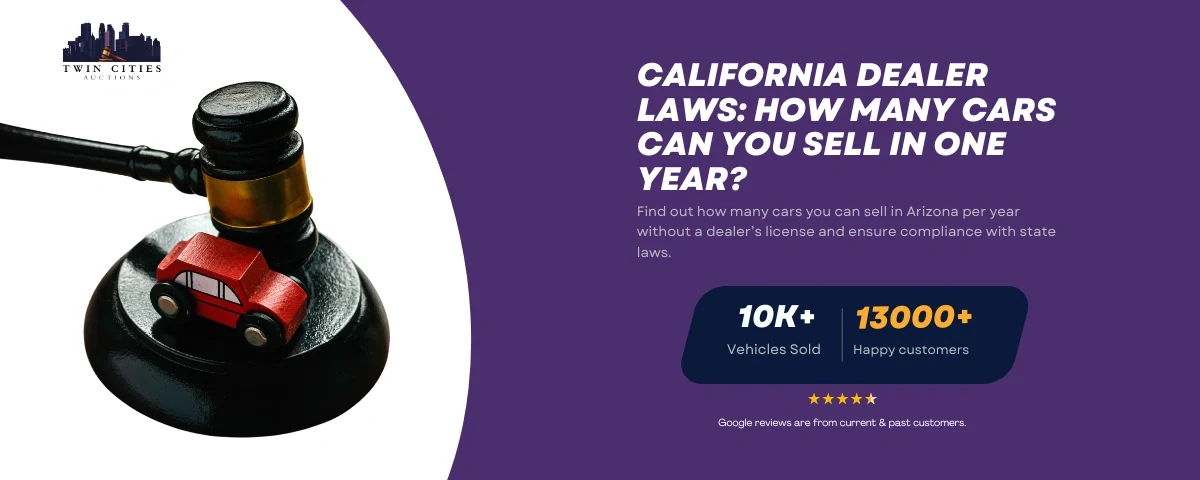California car sales regulations have captured the attention of automotive enthusiasts and private sellers alike. Have you ever wondered how many vehicles you can sell in a year without needing a dealer license?
This blog post dives into the specifics of California Dealer Law and offers practical insights for individuals and dealers. This comprehensive guide is designed to help you navigate the legal landscape of vehicle sales and make informed decisions in the marketplace.
The state of California maintains strict guidelines regarding car sales to protect consumers and ensure market integrity. For many, these regulations provide both clarity and a challenge depending on sales volume. Private sellers are allowed to sell up to five vehicles per year without a dealer license.
Once this limit is exceeded, additional legal requirements kick in, including the need to obtain a dealer license and comply with enhanced documentation, insurance, and bonding protocols. This blog outlines all these aspects to equip you with the necessary knowledge for success.
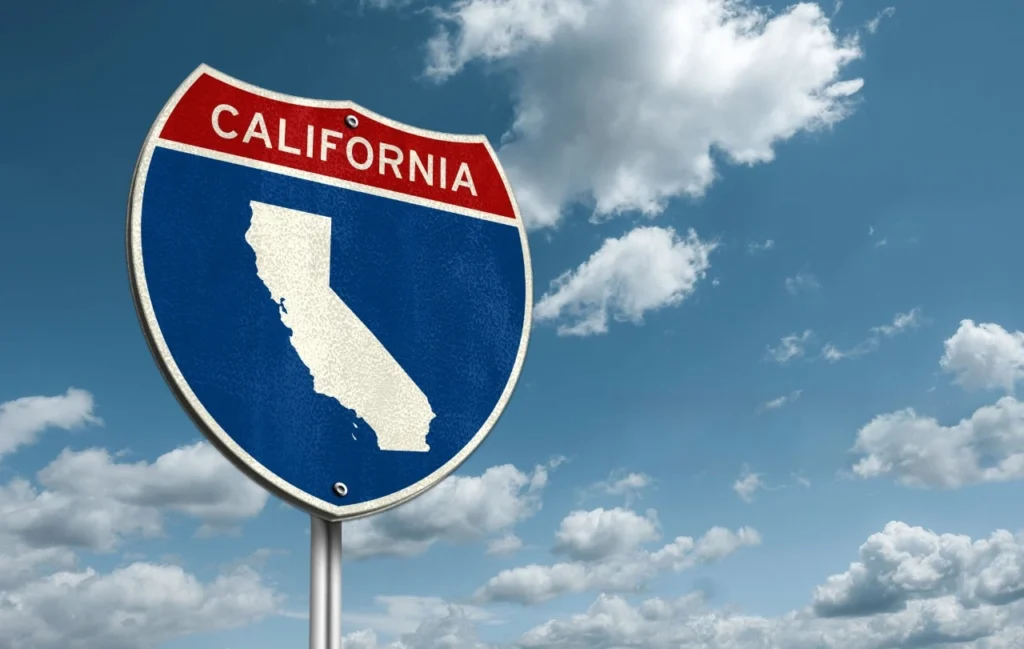
Key Takeaways
- California permits the sale of up to five vehicles per year by a private seller.
- Exceeding this limit requires a dealer license and adherence to stricter regulatory standards.
- Comprehensive understanding of these laws is essential for both casual sellers and those expanding their operations.
- Auctions, such as Twin Cities Auctions in Minnesota, offer an alternative that combines speed, competitive pricing, and transparency.
Understanding California Dealer Laws
Overview of California Vehicle Sales Regulations
California’s vehicle sales regulations aim to protect consumers and maintain transparency across all transactions. The California Department of Motor Vehicles (DMV) oversees these rules, ensuring that both private individuals and licensed dealers follow proper procedures.
Under current law, private sellers may sell up to five vehicles per calendar year without a dealer license. This limit helps prevent unlicensed individuals from operating as unofficial dealers and ensures that vehicle sales remain traceable and regulated.
For those exceeding the limit, the California DMV requires a dealer license, which includes meeting business location requirements, submitting a formal application, and passing a written exam. These standards support a fair and accountable automotive marketplace.
Key Regulatory Insights
California’s laws require sellers to provide accurate vehicle histories and maintain proper documentation during transactions.
This focus on transparency builds trust among buyers and reinforces consumer protection.
These regulations not only help in preventing fraudulent activities but also create a level playing field where both private sellers and dealers operate under clear guidelines.
Details of Sales Limit and Compliance
The rules are straightforward: if an individual sells more than five vehicles in a year, the state treats this activity as a business, necessitating a dealer license.
Compliance with this law is crucial to avoid legal repercussions such as fines or suspension of selling privileges.
Staying Within Legal Boundaries
Adhering to the five-vehicle limit ensures that occasional sellers remain compliant with California laws.
Careful record-keeping and a clear understanding of the sales threshold are essential to avoid crossing into unlicensed territory inadvertently.
Additional considerations include maintaining documentation for each transaction and understanding the implications of exceeding the set limit. With a solid grasp of these requirements, sellers can confidently navigate the vehicle sales market without facing legal issues.
- Keep meticulous records of every sale.
- Verify that all transactions align with state requirements.
- Ensure that each sale includes proper documentation and disclosure.
Navigating Dealer Licensing Requirements
When a Dealer License is Required
If your sales activity exceeds five vehicles per year, transitioning to a licensed dealer becomes necessary. This upgrade allows for higher volume sales and access to wholesale markets, but it also introduces additional responsibilities, such as maintaining a permanent business location and securing adequate insurance.
This licensing requirement serves as a checkpoint, ensuring that those operating on a larger scale have the proper infrastructure to support their business. It also protects consumers by ensuring that licensed dealers adhere to stringent regulatory standards.
Recognizing the Need for Licensing
When sales increase beyond the permissible limit, it’s essential to acknowledge that your operations now fall under business activity.
Switching to a dealer license not only legitimizes your business but also grants you access to benefits like trade-in options and dealer financing.
Steps to Obtain a Dealer License
The process of obtaining a dealer license involves several steps, including gathering the necessary documents, applying through the California DMV, and completing a pre-licensing education course. Applicants must also provide proof of a permanent business location, a surety bond, and liability insurance.
This structured approach ensures that all prospective dealers are well-equipped to handle the complexities of higher volume sales while maintaining consumer confidence. The process is designed to be rigorous to protect all parties involved in vehicle transactions.
Application Essentials
Gathering the right documentation, such as proof of business location and insurance, is the first step toward obtaining your dealer license.
Completing the pre-licensing education course provides a solid foundation in understanding both legal and practical aspects of operating as a dealer.
Below is a table summarizing the requirements for private sellers versus licensed dealers:
| Requirement | Private Seller Limit | Licensed Dealer Requirements |
| Annual Vehicle Sales | Up to 5 | Unlimited, subject to compliance |
| Business Location | Not required | Permanent business location needed |
| Insurance | Not required | Liability insurance mandatory |
| Record-Keeping Standards | Basic documentation | Detailed transaction logs |
| Bonding | Not required | Surety bond required |
This table provides a clear comparison to help determine when a dealer license becomes necessary.
California Vehicle Sales Trends and Market Insights
Market Trends in California Vehicle Sales
The vehicle sales market in California is dynamic, with trends influenced by consumer preferences, economic factors, and technological advancements. Increased reliance on online platforms and auctions for vehicle transactions has changed the way vehicles are sold in the state.
Consumers are increasingly turning to digital platforms for vehicle transactions, driven by the convenience and transparency they offer. This trend has made it easier for sellers to reach a broader audience and conduct sales more efficiently.
Emerging Sales Patterns
Digital marketplaces and online auctions are becoming central to vehicle sales, driving faster transactions and competitive pricing.
Seasonal trends and economic cycles play significant roles in determining market demand, which sellers should monitor closely.
Impact on Local Car Sales
Local car sales in California are directly influenced by the state’s regulatory framework. These rules help maintain a balanced market, ensuring that both private sellers and licensed dealers can operate within defined limits.
The legal framework not only protects consumers but also contributes to a stable and predictable sales environment. Local economic conditions, such as employment rates and consumer confidence, further impact vehicle sales.
Regional Market Dynamics
Local market factors such as regional demand and economic stability shape the overall sales environment.
Both private sellers and dealers benefit from a regulated market that fosters trust and transparency in transactions.
The following table compares the dynamics between private sales and dealership operations:
| Category | Private Sales | Dealership Sales |
| Annual Sales Limit | Up to 5 vehicles | No fixed limit |
| Regulatory Oversight | Minimal | Strict adherence to regulations |
| Sales Volume Range | Low to moderate | High volume |
| Pricing Flexibility | Greater freedom | Structured pricing based on analysis |
This comparison highlights the distinct operational frameworks for private sellers versus licensed dealers.
Why Auctions Are a Smart Choice for Vehicle Sales
Selling cars at an auction for resale is becoming an increasingly popular option for dealers and private sellers alike. Auctions, like Twin Cities Auctions, offer a streamlined and competitive way to buy and sell cars.
Advantages of Using Twin Cities Auctions
- Competitive Pricing: Auctions like Twin Cities Auctions allow sellers to set a competitive price and reach a broad pool of buyers.
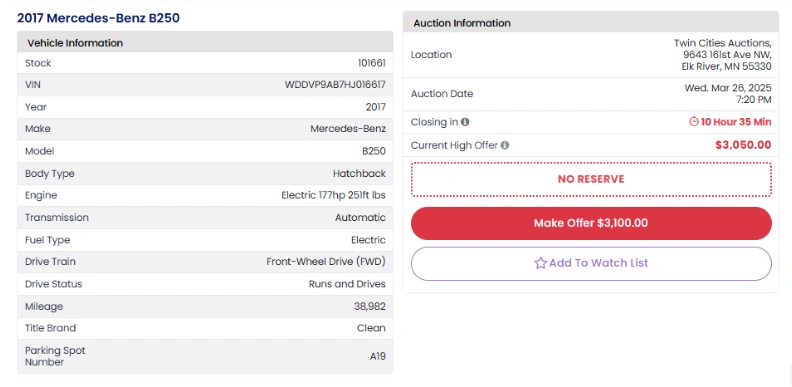
- Transparency: Every vehicle listed at the auction comes with detailed information, making the buying process transparent for both parties.
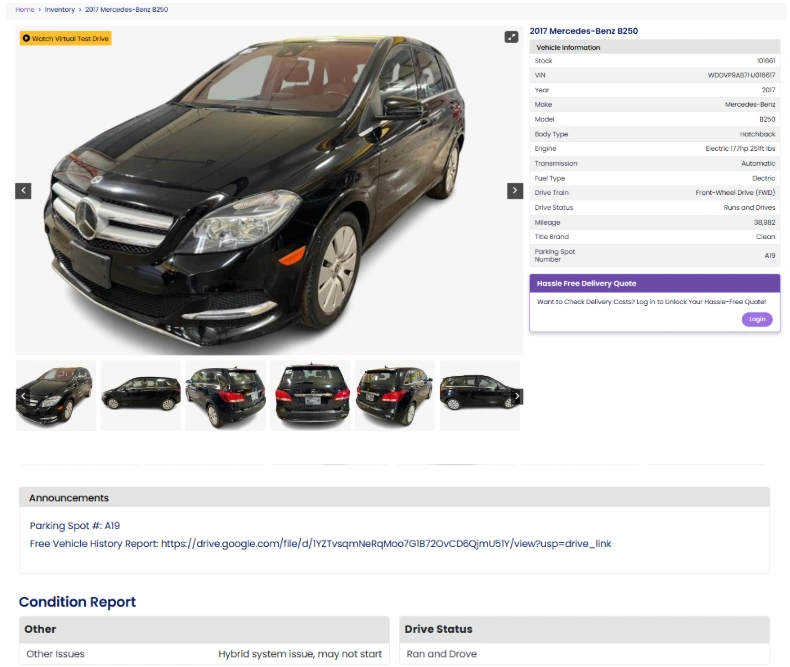
- Wide Inventory: Auctions have a large variety of vehicles available
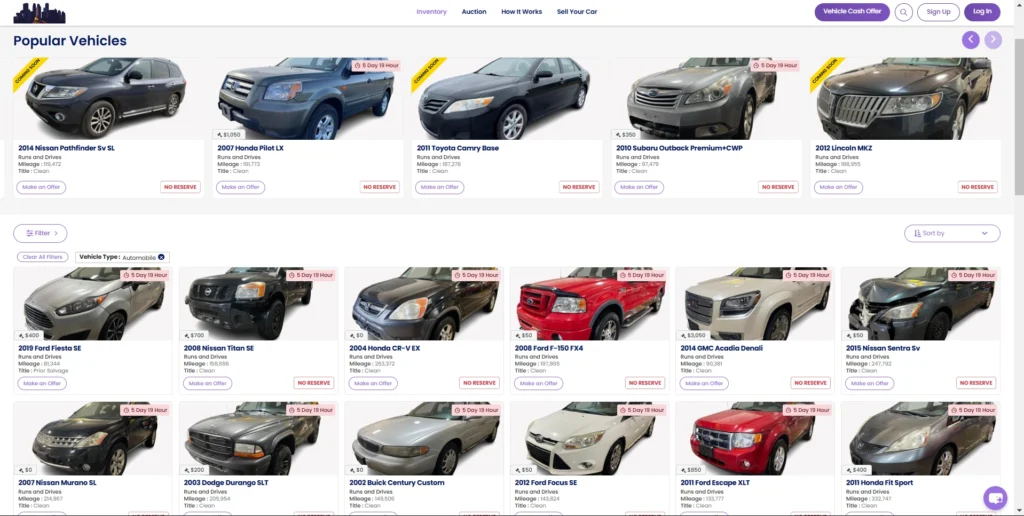
- Quick Turnaround: Auctions offer fast and efficient sales, helping sellers move inventory quickly.
Why Choose Twin Cities Auctions
| Feature | Twin Cities Auctions | Traditional Dealerships |
| Pricing | Competitive auction prices for both buyers and sellers | Fixed pricing, higher costs |
| Transparency | Detailed vehicle history and condition reports available | Varies by dealership |
| Convenience | Fast and efficient transactions | Longer sales cycles |
| Audience Reach | National and local buyers | Limited to local customers |
How the Auction Process Works
The auction process at Twin Cities Auctions is straightforward and user-friendly:
- Registration: Buyers register on the Twin Cities Auctions website.
- Vehicle Review: Detailed descriptions and histories of each vehicle are available for review.
- Bidding: Buyers participate in an open and competitive bidding process.
- Finalization: The highest bidder secures the vehicle and completes the purchase through a secure process.
This method not only promotes transparency but also provides opportunities for better pricing and quicker sales.
Benefits for Sellers on the Auction Platform
Sellers using Twin Cities Auctions enjoy numerous advantages:
- Wider Audience Reach: Access to a broad network of potential buyers.
- Faster Turnaround: The auction format typically results in quicker sales.
- Competitive Bidding: The transparent bidding process can drive up the final sale price.
The platform’s design helps ensure that both buyers and sellers benefit from a fair, efficient, and engaging transaction process.
Practical Tips for Sellers and Dealers
Whether you are a private seller or an established dealer, here are some tips to help you stay compliant with California’s laws and improve your vehicle sales:
Maintain Detailed Records: Always keep accurate records of each vehicle sold, including the sale price and buyer’s information, in case of any inquiries.
Keep Track of Your Sales: If you’re not licensed, keep track of the number of cars you sell. Exceeding the limit of five without a license can lead to penalties.
Know the Laws: Stay updated on the latest dealer laws and licensing requirements in California.
Utilize Auctions: Auctions provide an opportunity to spot a great deal which can be useful for sellers looking to buy vehicles to resell in California.
Conclusion
Understanding California Dealer Laws is crucial for anyone involved in vehicle sales. The state allows private sellers to sell up to five vehicles annually without a dealer license.
Exceeding this limit necessitates compliance with stricter regulatory standards and the procurement of a dealer license. Both private sellers and licensed dealers must navigate these rules carefully to avoid legal complications.
Additionally, the benefits of auctions, particularly through platforms like Twin Cities Auctions in MN, provide a viable alternative that emphasizes speed, competitive pricing, and market transparency.
Whether you are an occasional seller or planning to expand your operations, a thorough understanding of these laws will help you make informed decisions in the automotive market.
Public Auctions Made Easy with Twin Cities Auctions
At Twin Cities Auctions, we strive to simplify the public auction process for everyone. You don’t need a dealer license to buy or sell cars here. Our online auctions are designed to be user-friendly and open to the public, ensuring that individuals of all experience levels—from novice buyers to experienced sellers—can participate with ease.
With a focus on transparency and ease of use, we provide all the tools and support you need to confidently participate in the auction process. Start your car buying or selling journey with us today and experience how straightforward and effective our auction system can be!
Looking for more options? Explore our comprehensive list of all available car auctions across the United States. Your next deal might be just a click away!
FAQ
What is the vehicle sales limit for private sellers in California?
Private sellers in California are allowed to sell up to five vehicles per year without requiring a dealer license. Exceeding this limit necessitates obtaining a dealer license and complying with additional regulatory requirements.
How do California Dealer Laws protect consumers?
The laws ensure that sellers provide proper documentation and maintain transparency in transactions. This helps protect buyers from fraudulent practices and guarantees that vehicle histories are disclosed accurately.
When should I consider obtaining a dealer license?
If your vehicle sales exceed five cars in a year or if you plan to operate regularly, transitioning to a dealer license is advisable. This allows you to conduct unlimited sales under regulated conditions.
What are the benefits of selling vehicles through auctions?
Auctions provide competitive pricing, a transparent bidding process, and faster transaction times. They offer real-time market data that can help you adjust your pricing strategy effectively.
How does Twin Cities Auctions differentiate itself from other auction platforms?
Twin Cities Auctions provides competitive pricing, a wide selection of quality vehicles, and a transparent process that builds trust among both buyers and sellers. Their dedicated customer support enhances the overall experience.
Can I switch from private sales to a dealer license if my sales volume increases?
Yes, if you exceed the five-car limit, transitioning to a dealer license is the correct course of action. This change allows you to sell an unlimited number of vehicles while adhering to state regulations.
What documentation is required for obtaining a dealer license in California?
Prospective dealers need to provide proof of a permanent business location, liability insurance, a surety bond, and complete a pre-licensing education course. These requirements ensure that dealers operate under stringent guidelines.
Are there alternatives to traditional dealership sales for private sellers?
Yes, auctions offer a viable alternative with quick sales, competitive pricing, and a streamlined process that benefits both sellers and buyers.
External Source Links
https://www.dmv.ca.gov/portal/dmv
https://www.nada.org/
https://www.dmv.ca.gov/portal/dmv/detail/vehindustry/vehlic
https://www.dca.ca.gov
https://www.autotrader.com/car-news/
https://www.edmunds.com/
https://www.investopedia.com/
https://www.ca.gov


